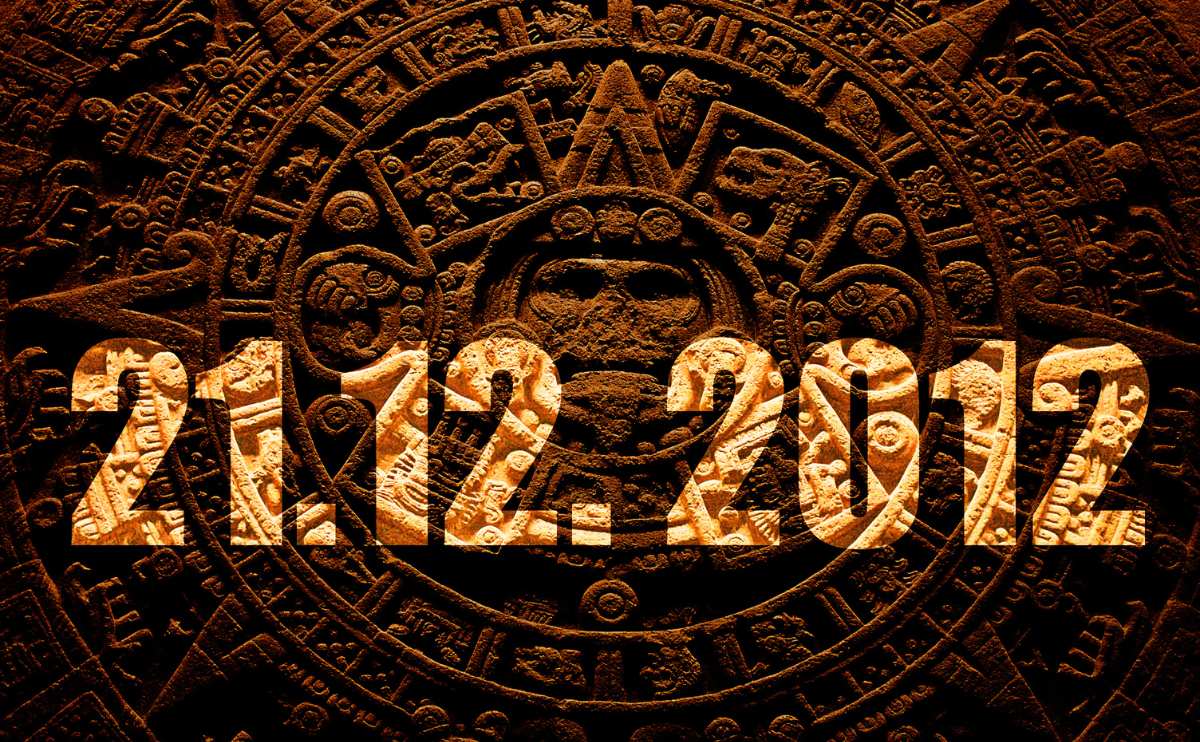Is There Life On Other Planets?
When you purchase through links on our site, we may earn a commission. Here’s how it works.
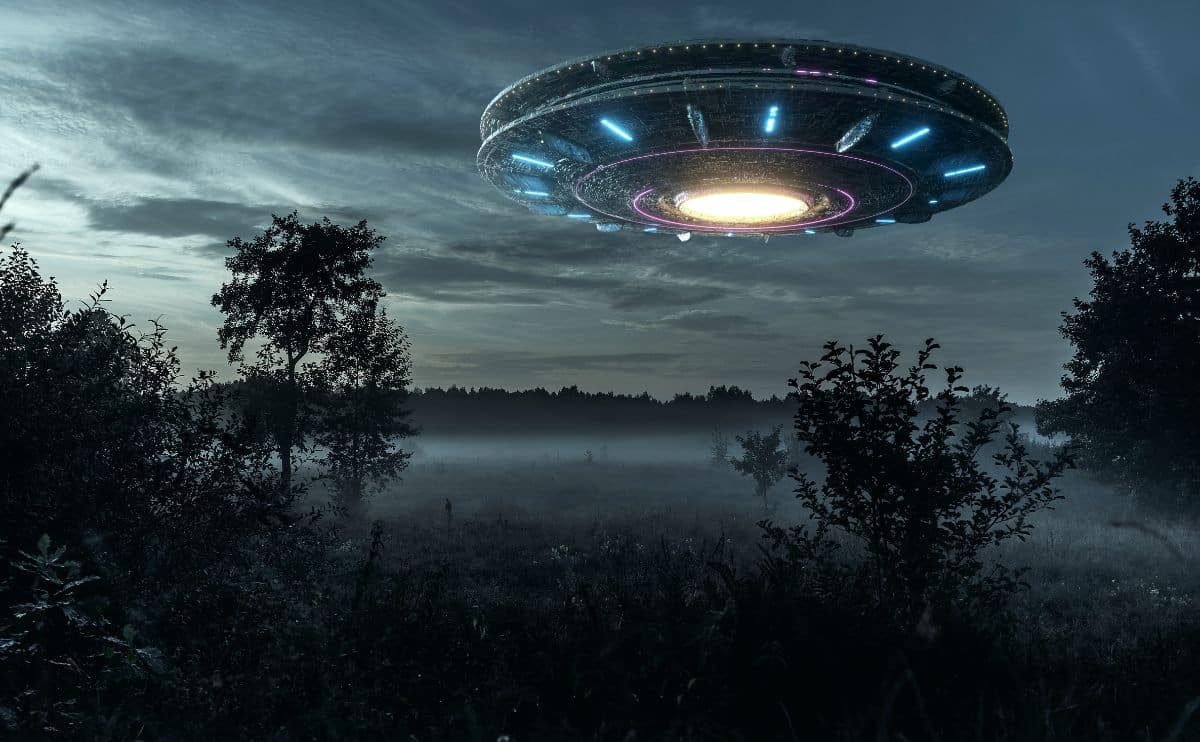
The human race is fascinated with space and what lies in the far outreaches of our universe. Generations of dedicated scientific researchers have developed equipment and methods of exploring, seeking an understanding of our universe’s vast expanse.
Beyond understanding the different chemical compounds and phenomena of planets, solar systems, and galaxies, humans have long sought an answer to the question: is there life on other planets? Earth is the only planet we know of to host life, but does that mean we are alone as the sole intelligent life forms in the universe?
Is There Life On Other Planets?
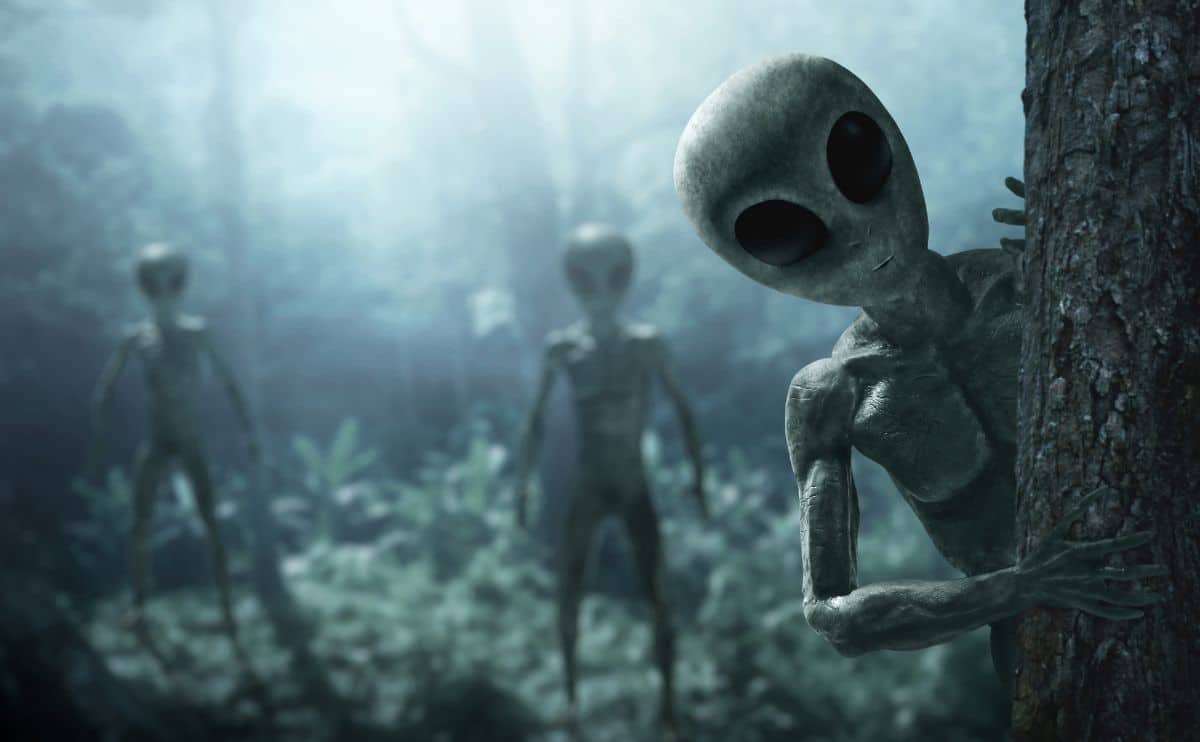
This question is one we have sought the answers to for a long time. While we haven’t yet found life on any other planet than our own, we have found other celestial bodies, including moons and distant planets, that have the potential to support life.
Ask most people across the world, and they will tell you that they believe in the possibility of life on another planet. According to Pew Research, at least two-thirds or 65% of Americans believe intelligent life exists on other planets. In addition:
- 51% of Americans do not believe UFOs are a threat.
- 11% of Americans believe that UFOs are definitely evidence of intelligent life outside of Earth.
- 40% of Americans believe that military-reported UFOs are “probably” evidence of extraterrestrial life.
An Expert’s Opinion About Life On Other Planets
To get an expert opinion on the subject, I asked my husband, an award-winning science and aerospace educator with over 20 years of experience, “Is there life on other planets?”
Whether there is life on other planets isn’t a matter of if but when and where. The same physical rules govern all parts of the universe, and chemistry is the same everywhere. The universe is just so massive with so many billions of stars that the chances that two identifiable forms of life will be in the same area at the same time are pretty slim, but the chances that life exists across the universe at a variety of times over the last 15 billion years is pretty high.
Space is big, like unimaginably vast. In our galaxy alone, it takes 100,000 light years to travel from one side to the other. It would take a spaceship 200,000 years traveling at the speed of light to cross the entire Milky Way. Modern humans only evolved about 100,000 years ago, so the light that left Earth the very first day a human was born on this planet hasn’t even left our galaxy. There are galaxies as far as 15 billion light years away that will never know that we exist, and we will never know that intelligent life on those galaxies exists.
Light has a definite speed, making places in the universe very hard to get to, even at the speed of light. If another civilization lived in the Andromeda Galaxy, our closest neighbor, and saw us and sent us a message today, we wouldn’t receive it for two a million years. That’s how far away the closest galaxy is, so yes, there most likely are and will always be other life forms in this universe.
– Colin DeGroot, science educator
Some folks may say (so as not to appear too eccentric) that life on other planets does not have to be little green men or “aliens.” Others will openly admit to a belief in alien life forms, and they will even share with you stories of alien abduction. While everyone’s understanding and ideas of life outside Earth vary, nine out of every ten people will admit to believing in some other life force outside of our planet. I freely admit that I believe life exists somewhere else in the universe.
For many people, this belief tends to stem from science fiction, but for others, it comes from a desperate hope that humans cannot possibly be the most intelligent or only life form in the universe. Pointing to the signs of destruction all over the planet and how quickly the human race is destroying the only planet they can survive on, people tend to panic.
Finding Proof Of Extraterrestrial Life
Despite NASA missions into space, landing on the moon, and sending satellites and vehicles up to other planets, scientists have yet to find proof of life on other planets. The point of contention, however, comes when the basis of life on other planets is based on the basic human needs for life to be sustained. Life on Earth is carbon-based. Without that element, no life on the planet would be possible.
Far too much is unknown about potential extraterrestrial life forms and what they might need to survive. We cannot assume that other life forms require the same exact recipe of life’s essential ingredients as we do. Who’s to say that these life forms need the same levels of oxygen, water, temperature, and energy as humans and other life forms on Earth? After all, isn’t the very definition of something “alien” simply that something is different from our own? So we can expand the discussion to include the question: is there life in other galaxies? While we don’t have a concrete answer, it seems highly likely life exists beyond the Milky Way.
To a life form that originates elsewhere in the universe, we are the aliens. We can only assume that conditions that are inhospitable to life as we know it are also inhospitable to alien life forms.
How Do We Look For Life On Other Planets?
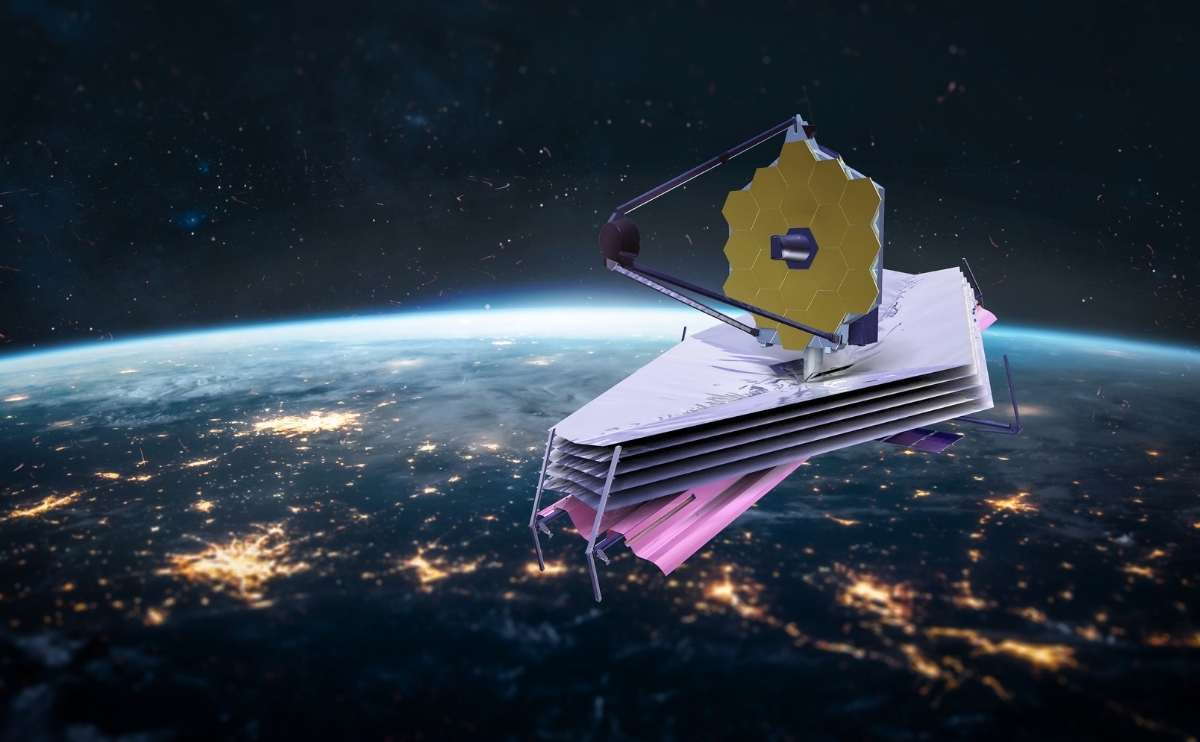
Though we have yet to find even one single living organism on another planet, scientists, astronomers, physicists, and even geologists scan the solar system and beyond looking for traces of life based on what we know, our basic needs, and our requirements for survival.
Astrobiology is a field of science dedicated to understanding the origin of life and how it survives in varying environments. As described by NASA, it is the “study of the origin, evolution, and distribution of life in the universe.” Astrobiologists study life on Earth as well as other planets and moons for signs of a habitable environment that may be able to support carbon-based life.
So, how exactly do we search for life on other planets? Through the use of amazing technology and tools, we can gather information about life on other planets. While we do use things like NASA rovers and missions to gather rocks and soil from other planets in our solar system, one of the most powerful tools we have to detect life on other planets is light.
Light interacts with different molecules in certain ways, and human scientists have learned to use those interactions to help detect life. Certain molecules, called biomarkers, indicate life. Light interacts predictably with these different biomarkers, and scientists have learned how to measure and read that light to help detect planets that can support life.
Spectroscopy
A spectrometer is a tool that measures the spectra, or light wavelengths, and allows scientists to identify different gases. Using a technique called spectroscopy, light from a star goes through the atmosphere of a distant planet, creating electromagnetic wavelengths, which create a barcode-like graph. The missing sections show scientists what chemicals and gases are in that distant planet’s atmosphere.
NASA’s James Webb Space Telescope is an incredibly powerful tool that uses the Near-Infrared Spectrograph (NIRSpec) to capture spectra from dozens of space objects at a time. Though the Webb scope is sending us back stunning infrared images, its capacity for spectroscopy goes far beyond taking images.
According to NASA, the James Webb Space Telescope can capture spectra from deep space, allowing scientists to study:
- The atmospheres and surfaces of planets and other objects like moons, comets, and asteroids
- Kuiper Belt objects (doughnut-shaped regions of frozen and icy objects beyond the orbit of Neptune, including the dwarf planet Pluto)
- Fully formed exoplanets (planets outside our solar system), planets in the process of forming, and proto-planetary debris disks orbiting distant stars in the Milky Way Galaxy
- Mature stars of different sizes, masses, ages, colors, temperatures, evolutionary stages, and formation environments
- Newly forming stars cocooned in dense dark clouds of gas and dust
- Cold molecular clouds that collapse to form stars
- Gas and dust ejected from dying stars and molecules between stars
- Galaxies at different stages of evolution, including the first galaxies in their earliest stages of development
This tool can greatly expand the human race’s ability to use light to search for life on other planets.
Radio Waves
The use of radio telescopes is another method scientists use to search for extraterrestrial life. These telescopes can pick up radio waves from space and have identified exoplanets. One facility, the Karl G. Jansky Very Large Array in central New Mexico, has been capturing and studying radio waves from space since it was built in the 1970s.
The Kepler Mission
The Kepler space telescope was the first planet-hunting mission NASA embarked on. Scientists launched the scope into space in 2009 to search the Milky Way for planets that were the same size as Earth. We learned from that mission that there are far more planets in our galaxy than stars; eventually, the mission expanded to find hidden exoplanets and potential places for life to exist. The Kepler space telescope has been retired, but it was able to discover over 2,600 planets outside our own solar system.
Other Research
Outside of NASA, many other organizations are searching the vast universe for life on other planets and other galaxies. These include Harvard University’s The Galileo Project for the Systematic Scientific Search for Evidence of Extraterrestrial Technological Artifacts, which searches for extraterrestrial technology signatures.
Along with that, the Harvard & Smithsonian Center For Astrophysics focuses on many types of space research and solving the big questions of the universe. And we cannot forget the SETI Institute (Search for Extraterrestrial Intelligence), the only organization in the country that is dedicated wholly to searching for life in the universe.
Outside of the United States, plenty of other countries have space programs, satellites, and technology they use to search for life beyond our planet. Perhaps one day, with all of us working toward the same goal, we will reach that moment of first contact with an extraterrestrial life form.
The Essential Elements Of Life
Life on Earth requires six basic chemical elements, and all living things have these in common. They are the building blocks of life. These six elements are carbon, hydrogen, nitrogen, oxygen, phosphorus, and sulfur, referred to in the scientific community as CHNOPS.
Along with these six chemical ingredients, life also needs liquid water and energy. We get our energy from our star, the Sun, or Sol, which gives name to our solar system.
These essential ingredients to life are plentiful throughout the universe, and given the right conditions, an energy source like our Sun and water, life similar to what we know it as can exist.
What Types of Conditions Would Extraterrestrial Life Require?
Assuming that alien life forms do require similar conditions as humans to exist and sustain life on a planet, there is no chance that they would be able to live on any of the planets within our solar system. That said, we cannot assume that other life in the universe has the same living requirements we do. So, as we do not know the conditions of every planet in the Milky Way Galaxy, let alone the entire universe, we cannot assume there is no other planet that can support or host life.
The planets within our solar system, as most of the current generation learned them, include Mercury, Venus, Earth, Mars, Jupiter, Saturn, Uranus, Neptune, and Pluto (now recognized not as a planet but as a dwarf planet.) Life forms that have the same requirements as the human race are unable to sustain themselves on any of these planets, except Earth.
What Other Planets Can We Live On?
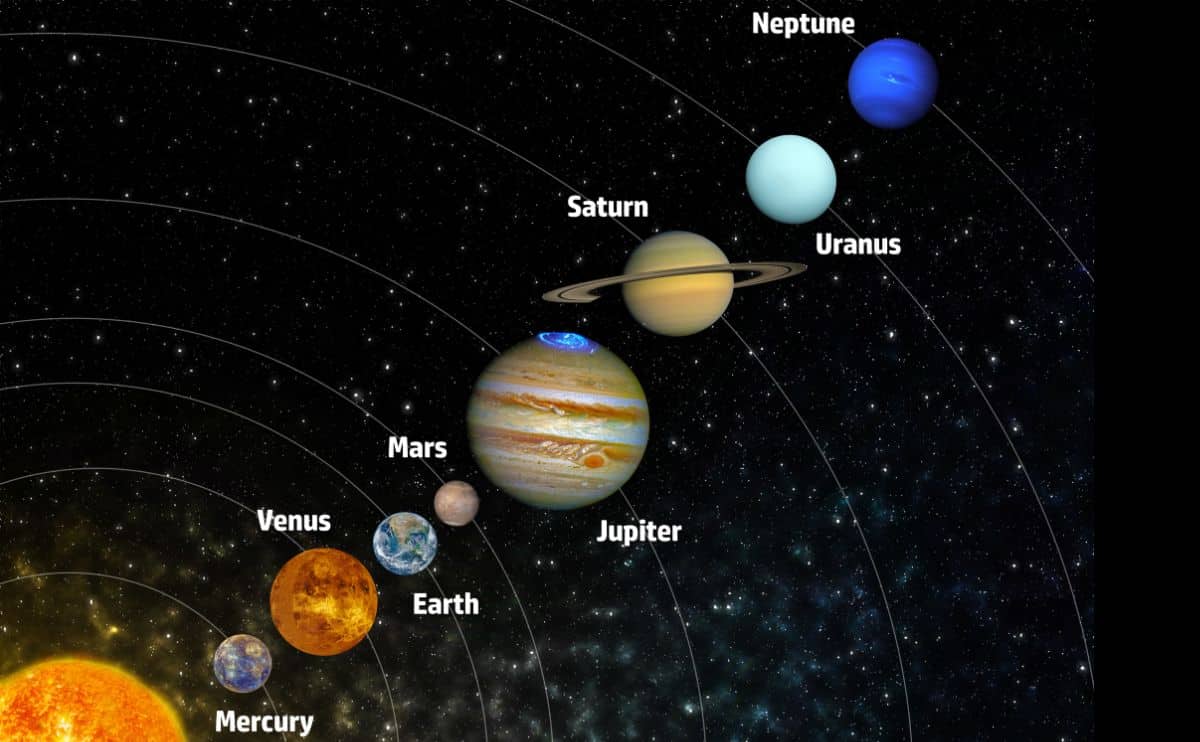
Earth is the only planet we know of so far that can sustain life. Located as the third planet from the Sun – some 93 million miles or one Astronomical Unit away, the Earth is the fifth largest planet in the solar system and has just one moon. The mass of the planet Earth is 5.98 x 1024 kg and has an average density of 5520 kg/m3. As such, the Earth is known to be the densest of all the planets contained within our solar system.
While temperatures on the Earth’s surface vary considerably, most of the face of the planet is hospitable to life, with temperatures ranging between -127 degrees Fahrenheit and 136 degrees Fahrenheit. The atmosphere of the planet Earth is made up of a variety of gasses, which are primarily made up of 78% nitrogen, 21% oxygen, 1% argon, and 0.03% carbon dioxide. In combination with the availability of water and the abundance of oxygen, these conditions make Earth a suitable planet for life.
Comparing Earth To Other Planets In Our Solar System
Let’s take a look at the different planets in our solar system and learn why they cannot support life the way our Earth can.
Mercury
Mercury is the planet closest to the Sun in our solar system, meaning that the temperature alone makes the planet inhospitable, with blazing hot temperatures in the day and freezing cold temperatures at night. The lack of atmosphere around Mercury means that this planet can’t maintain heat, and temperatures would move from one extreme to the other very quickly. Mercury’s lack of atmosphere also means that the essential elements needed to support life in any form are missing.
The gravity on Mercury is also considerably less than the gravity on Earth, meaning that living conditions would be altered dramatically for any life forms that were able to sustain life on Mercury. As for the moon that controls so much on the planet Earth? Well, Mercury has no moon.
Venus
Venus is the second planet from the Sun. It is known to be the single hottest planet within the solar system, making it completely inhospitable to life. With an atmosphere that is mostly composed of carbon dioxide and huge clouds of sulfuric acid soaking up the heat from the blazing hot Sun, there is absolutely nothing about Venus that suggests that life in any form is possible.
Unlike Mercury, Venus is similar in size to the planet Earth, measuring around 95% of the diameter of Earth. In addition to this, the gravity on Venus is also similar to that of Earth, coming in at some 91% of Earth’s gravity. Venus, similar to Mercury, has no moons, and it also has extremely high atmospheric pressure, which further ensures that life on Venus is simply impossible.
Mars
Mars is also known as a dead planet. It was once believed to have been capable of supporting life because it is the planet that most resembles Earth. Mars is the fourth planet from the Sun in our solar system and is only about half Earth’s size. Many experts believe that billions of years ago, ancient Mars supported a climate teeming with life, similar to Earth. The surface of Mars is dusty, but the ground is frozen. Mars features north and south poles much like Earth, and each of these is characterized by ice caps made from water and carbon dioxide.
Recent missions to Mars sent back photographs that suggest that at one time, Mars had rivers and other large bodies of water, which gives hope that life would have been, at least at one time, sustainable on the planet. Most of this water now forms the permafrost, which coats the planet’s surface.
The crust on Mars is thin, much like the crust on Earth; however, the mass of Mars in comparison to Earth is a mere 1/9th of the mass of the planet Earth. Mars is located further from the Sun than the Earth, and it also has an atmosphere that lacks oxygen (Mars’ atmosphere is comprised primarily of 95% carbon dioxide, 2.7% nitrogen, and 1.6% argon) and is significantly lower in pressure than the atmosphere found on Earth. Mars does have two moons, but they are significantly smaller than the Earth’s moon.
Jupiter
Jupiter is the largest of all of the planets in our solar system and is the fifth planet from the Sun. The atmosphere on Jupiter is particularly thick, and the planet itself is made of gas for the most part. One of the most inhospitable aspects about the planet Jupiter in terms of supporting life is that Jupiter absorbs heat from the Sun but then outputs twice as much heat, making it an extremely hot and uncomfortable planet.
As far as size, Jupiter is somewhere around eleven times the size of Earth, and in comparison to the gravity pull on Earth, the gravity pull on Jupiter is considerably less in comparison to the sheer mass of the planet itself. Jupiter does have moons, four large moons, and some thirty-five smaller ones, all of which would wreak havoc on life forms living on the planet. As if the idea that Jupiter is made mostly of gasses wasn’t enough to discourage concepts of life there, it should be mentioned that the average temperature of the clouds on Jupiter comes in at around -244 degrees Fahrenheit.
What About Europa?
While Jupiter cannot support life, one of its many moons, Europa, might be able to. Europa is an icy moon that is as old as Earth. We have studied Europa because it has three of the essential elements needed for life: liquid water, energy, and possibly some of the chemical compounds needed for life to form. That said, Europa is a frozen moon with high radiation from Jupiter, making survival on the surface very difficult. The temperatures are brutal, between- 260 degrees Fahrenheit to -730 degrees Fahrenheit. A virtually non-existent atmosphere and low gravity are also hindrances to life as we know it.
NASA is not giving up on Europa and is planning a mission to explore the moon in late 2024. It will be the first of its kind. The NASA Europa Clipper mission will send a spacecraft to orbit Jupiter and gather information about Europa. NASA is building a radiation-tolerant, highly specialized spacecraft to perform the mission and make some close flybys of the frozen moon. The mission is set to last four years. Only time will tell if Europa has or can support life, but the possibility of it is very exciting.
Saturn
Saturn comes in second after Jupiter in terms of the sheer size of planets, and it is located as the sixth planet from the Sun. The rings that Saturn is most recognized for are made from large chunks of both rock and ice, and the planet itself is made up mostly of helium and hydrogen gasses. In size, Saturn is about nine and a half times the size of planet Earth and is around 95 times the mass of Earth, although the pull of gravity on Saturn is approximately the same as that on Earth.
One of the unique factors about Saturn is that it is the only planet to be less dense than water. Although there are trace amounts of water to be found on Saturn, the majority of the water that would be available to inhabitants is found in the ice chunks within the rings of Saturn. The average temperature on Saturn is around -290 degrees Fahrenheit, simply impossible for life to be sustained. Saturn does have a variety of moons, at least 146.
Uranus
Uranus is the seventh planet from the Sun, and due to its rotation on its axis, the seasons on Uranus alone are so extreme that they are inhospitable to life. In terms of size, Uranus is about four times the size of the planet Earth and is about 14 times the mass of Earth; however, the pull of gravity on Uranus is only 91% of the pull of gravity on Earth.
Uranus is considered to be a frozen planet called an ice giant, and the atmosphere is made up of some 83% hydrogen, 15% helium, and 2% methane, which is equally as inhabitable as the extreme temperature.
Uranus is 19 times further from the Sun than the planet Earth, and the mean temperature of the planet is around -350 degrees Fahrenheit, which makes Uranus even more inhospitable than Saturn in terms of temperature.
Neptune
Neptune is the eighth planet from the Sun, and it is the first planet that was predicted mathematically. The giant blue planet is around 3.9 times the size of the planet Earth and is around 17 times the mass of Earth, with just 1.19 times the gravity found on Earth. Neptune is some thirty times further from the Sun than the Earth, and as such, the temperature averages at around -373.27 degrees Fahrenheit. Such frigid temperatures alone make Neptune inhospitable to life forms similar to those of the human race.
Additionally, on the planet Neptune, seasons last for some forty years at a time. This means that the north and south poles are in complete darkness or complete sunlight for 40 years at a time. In the average lifetime of one person living close to these poles, they would see the sunrise only once. The atmosphere of Neptune is believed to be thick and hazy and consists of 80% hydrogen, 19% helium, and 1.5% methane, which also makes it inhospitable to human life.
It should also be noted that Neptune is a particularly stormy planet with the fastest winds known to be found on any planet in the solar system. These winds would not only make human life impossible even if the atmosphere were hospitable but would also make plant life impossible to sustain as well.
Pluto
Note: I realize that Pluto was “decommissioned” in 2006 as a planet, but being a fan of Pluto, I’m treating it as one for this discussion.
Lastly is Pluto, the pseudo-planet or “dwarf planet” as it is now known. When it was known as a planet, Pluto was the smallest of the planets in the solar system, and it is about 1/5 the size of Earth. Pluto is believed to be around 1/500th of the mass of the planet Earth, and gravity is only around 8%. This means that a person weighing 100 pounds would weigh just 8 pounds on Pluto. Pluto is 39 times further from the Sun than the planet Earth, and as such, temperatures tend to average at around -393 degrees Fahrenheit, which means that no human-like life form can survive on Pluto.
Pluto has never been visited to date, so scientists are unsure as to the makeup of Pluto’s atmosphere. It is believed to be made up of mostly nitrogen with some carbon monoxide and methane, meaning that it would be impossible for any human-like life form to even breathe. Pluto has one large moon and two smaller moons.
Detecting Life in the Cosmos (VIDEO)
This video, courtesy of PBS, addresses how we might find life on Earth-like planets. Harvard astrophysicist Lisa Kaltenegger shows us that the planet’s atmosphere provides the key to finding life on other planets. Learn more on the PBS NOVA website.
Finding Life Far, Far Away…
While the concept of life resembling human life on other planets may be possible as far as other planets and galaxies in the universe, it is certainly not a possibility on the planets that we have recognized so far in our own solar system. From extreme temperatures to inhospitable atmospheres, the planets within our own solar system are simply not able to sustain life with the same demands as humans.
Now, could other life forms be so drastically different from humans? Can life be created from some new element altogether and not carbon-based life forms? Perhaps. Then, the question of life on other planets within our solar system can be raised again. However, until there is proof of life forms other than those based on carbon, the possibility of life on other planets will have to depend on planets outside of our own solar system.
Ways To Explore Space From Right Here On Earth
While the majority of us will never go personally to space, we can use tools right here on the ground to explore on our own. One way to see space for yourself is to use a telescope. Telescopes can be used to view celestial objects, take pictures, and give us a glimpse of what exists beyond our planet. You can learn more about beginner telescopes in our guide.
So what do you think? Is there life anywhere else in the universe than Earth? I’d love to hear your thoughts in the comments.
Why Trust Safe Smart Living?
Danielle is a professional writer, researcher, and lifelong learner. She has spent countless hours researching many organizations and works to bring our readers the most recent, accurate, science-based, and data-driven information. Danielle works alongside a dedicated team of individuals who share the same goal.



